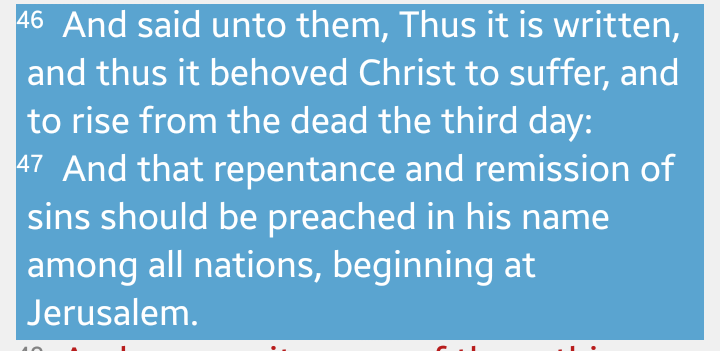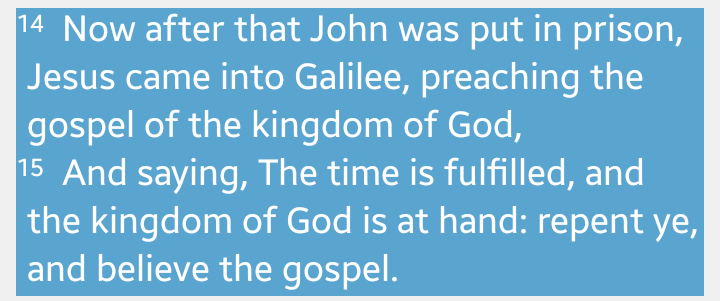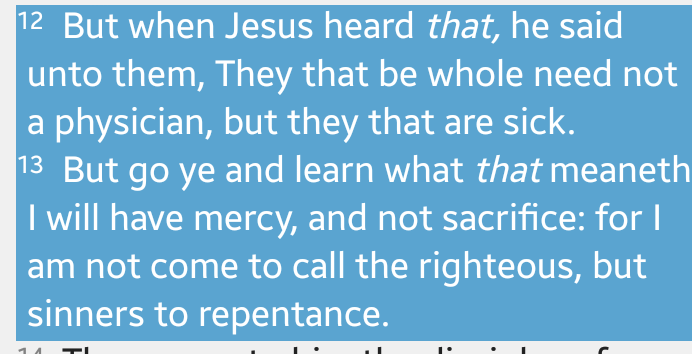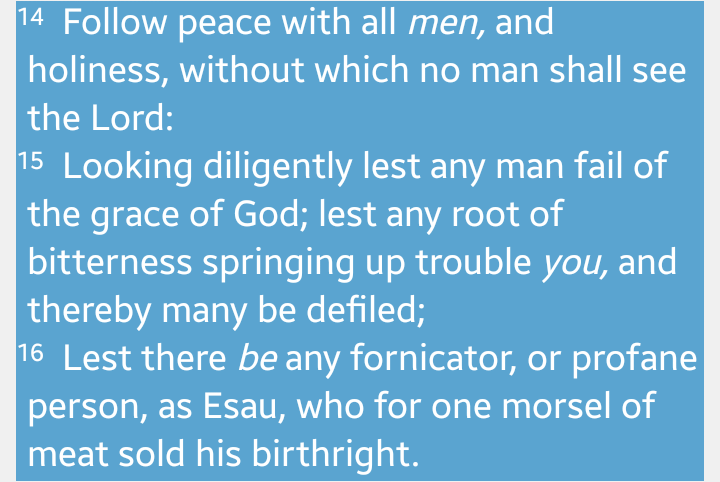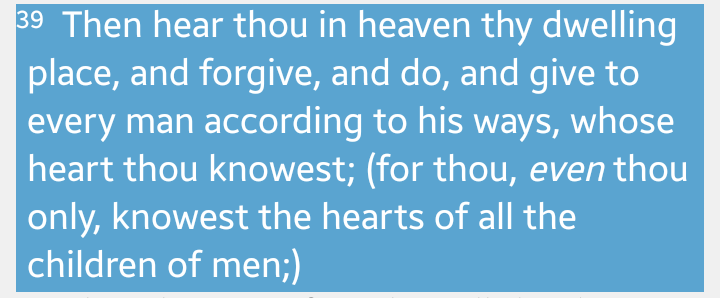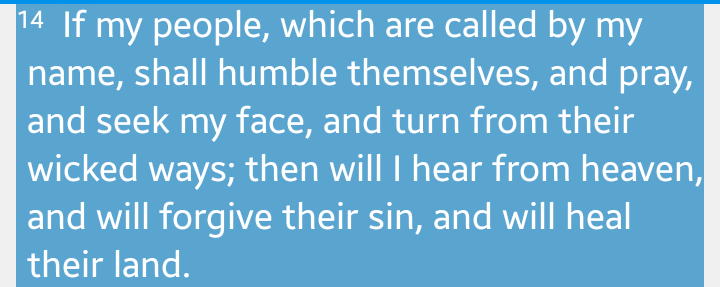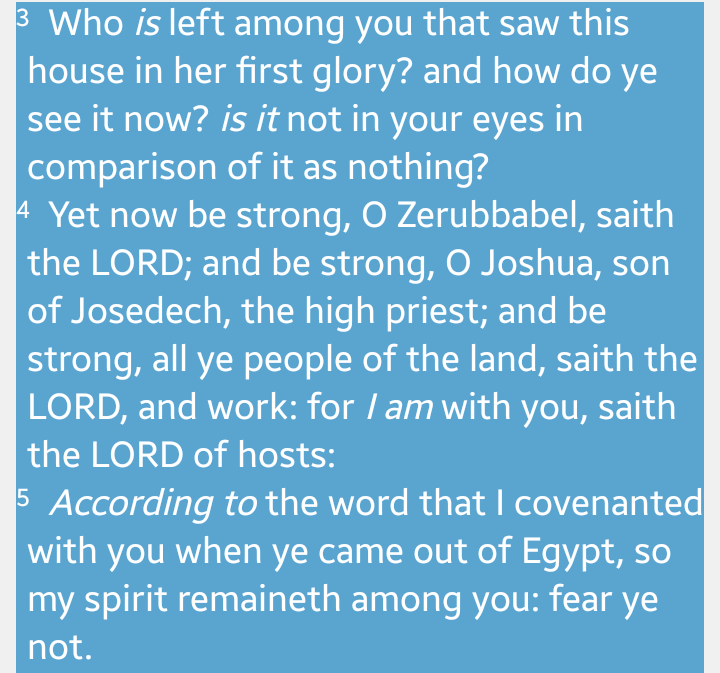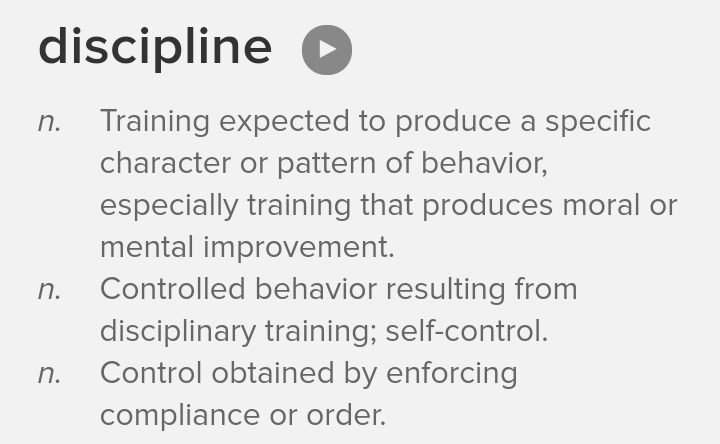
Aleezah
Members-
Posts
83 -
Joined
-
Last visited
Everything posted by Aleezah
-
Q1. Continual Prayer
Aleezah replied to Pastor Ralph's topic in 6. Nehemiah’s Prayer (Nehemiah 1:1-2:8)
1. Nehemiah was distraught over the plight of the Jews so he went into fervent prayer. 2. Christ stated that some situations require fasting. Nehemiah wept because he was in pain from seeing the Jews suffer so badly. The wall of Jerusalem was broken down and the gates were burning. 3. No, we are to pray without ceasing. -
Q4. By My Spirit
Aleezah replied to Pastor Ralph's topic in 3. Encouragement for the Builders (Zechariah 1-6)
1. We fall into the of trying to do God's work because we are a stubborn and controlling people. 2. It meant that sheer human strength and physicality would not be sufficient to complete the task of rebuilding the temple. God's Holy Spirit would need to intervene to accomplish the task. 3. I would also have to count on my Heavenly Father to help me accomplish my tasks. -
Q3. Clean Clothes
Aleezah replied to Pastor Ralph's topic in 3. Encouragement for the Builders (Zechariah 1-6)
1. Joshua's filthy clothes meant being symbolically clothed in sin. 2. As noted in Zechariah 3:4 angels were sent to take the filthy garments away. When the filthy garments were taken away so was the iniquities. Joshua was then clothed with new raiments. These new rainments represented salvation for the nations. 3. Our Heavenly Father was symbolically cleansing the High Priesthood and restoring Israel to it's original calling through Joshua. 4. This message would allow Christian leaders to realize there is hope in being restored if someone happens to fall into sin. There is hope in our Heavenly Father and HIS SON. Christ died so we could live. -
Q2. Be Still
Aleezah replied to Pastor Ralph's topic in 3. Encouragement for the Builders (Zechariah 1-6)
1. It is difficult to hear and comprehend when we are noisey. It is important out of respect, honor, and discipline that we be still when our Heavenly Father is out of HIS holy habitation. 2. Silence helps us to hear the voice of our Heavenly Father better. 3. It's difficult for me to say.... 4. Silence represents reverence, honor, and respect for our Heavenly Father. -
Q1. Repentance
Aleezah replied to Pastor Ralph's topic in 3. Encouragement for the Builders (Zechariah 1-6)
1. The two are interrelated and necessary for salvation. Mark 1:14, 15 states: Furthermore it is written in Luke 24:46,47: 2. We remove the whole reason that the Messiah came. See Matthew 9:12, 13 According to Luke 13:3 we will perish if we don't repent. See Luke 13:3: -
1. Through Zerubbabel [the signet], God was restoring the royal line of David, therefore ushering in our Messiah. Knowing he is is an integral part of ushering in the Messiah is extremely encouraging. 2. The signet ring discussed in Haggai 2:23 refers to the engraved gold which represented the authority of the bearer. Ancient kings used signet rings to designate authority, honor, or ownership. 3. Listening to HIS spirit teaches us to continue on the correct path to following HIM as well as doing HIS will. That allows us to become HIS effective agent, which in turn allows us to bring other's into God's kingdom. Acts 17:28 gives us that authority:
-
1. Hebrew 12:14-16 states: 2. 1 Kings 8:39 states:God knows the hearts of all men whether in church or otherwise. 3. Repent, Repent, Repent. 2 Chronicles 7:14 states:
-
God lets Joshua, Zerubbabel and the people of the land and work know HE is with them and to not fear. They are not alone in their efforts. For me [to not focus on discouragement], it is important that I keep my thoughts and actions totally focused on the things of God. I am aware that haSatan wants me to keep God's children off task and discouraged. We must keep worldliness at bay. Listening to Scriptures daily for several hours helps to keep me disciplined and focused on the kingdom of God. Bible studies also helps me.
-
It is my belief that being disciplined helps redirect one's priorities so they can get back to the required tasks. I am not experiencing hardships. To YAH goes the Glory. HalleluYAH! It appears the Caribbean Islands, Mexico, Florida, Haiti, Cuba, Turks and Caico, and Puerto Rico are suffering due to earthquakes and hurricanes. When I have trials and tribulations, I count it all joy. We will suffer as our Messiah suffered, it is a part of our calling.
-
Q1. Taking Pleasure
Aleezah replied to Pastor Ralph's topic in 2. Realigning Priorities (Haggai 1-2)
God is displeased with me when I stop focusing on HIM and making HIM a priority in my life. It is important I stay focused on Matthew 6:33. God takes pleasure in me when I allow HIM to order my daily steps in HIS WORDS and not get distracted by day to day busyness. There are days I get caught up in my own personal nonsense or vanities. I call it nonsense/vanities, because Ecclesiastes reminds us that most of our day to day busyness ends up being wasted time and effort. -
Ecclesiastes 1:9 is really quite clear, there is no new thing under the sun. As a result repenting today is no different than repentance many moons ago. Repent means to turn from sin, no if, ands, or buts. For myself, I always pray Psalm 51 and the Lord's Prayer in Matthew 6. I find these to be very helpful. I believe we must constantly pray like Daniel throughout the day and also pray that our steps are ordered by our Heavenly Father. I find listening to Scriptures on YouTube by Tmantz625 very helpful. Psalm 119:105 states,"Thy WORD is a lamp unto my feet and a light unto my path."
-
Q3. Redesigning Worship
Aleezah replied to Pastor Ralph's topic in 1 Returning to Rebuild the Temple (Ezra 1-6)
The keyword in this question is "uncommitted". An uncommitted person is less likely to complete anything. They lack focus and purpose. The God we serve is unchangeable, we don't need to reinvent the will. The blueprint is already laid out in the Scriptures. To "me", innovation could be a waste of time and energy in our walk of faith with God. -
Q2. Restoring Worship
Aleezah replied to Pastor Ralph's topic in 1 Returning to Rebuild the Temple (Ezra 1-6)
Excellent question! I am diligently working on my worshipping skills. I can always improve in this area. Admittedly, I get distracted with day to day busyness. This is unfortunate and unacceptable. I need to get organized and denounce procrastination in my life. I could also use someone who would hold me accountable. -
Q1. Motivation to Return
Aleezah replied to Pastor Ralph's topic in 1 Returning to Rebuild the Temple (Ezra 1-6)
The key to knowing who returned lies in chapter 5 with the statement, "them whose spirit God had raised." It appears those who went needed an unctioning of the Holy Spirit of God. The characteristics needed to go back to Jerusalem is faithfulness, trustworthiness, loving, devoted, dedicated, hardworking, and prayerful. To answer the call of Christ one must be ready and willing to totally surrender all. Many people are attached to this life. Scripture is very clear, one must be willing to lose their life for Christ's in order to gain eternal everlasting life. Unfortunately, the Scriptures states "many are called but few are chosen." One must be obedient, faithful, willing to die, focused, and willing to pick up your cross and blindly follow the Messiah. -
Q4. Never Give Up
Aleezah replied to Pastor Ralph's topic in 1 Returning to Rebuild the Temple (Ezra 1-6)
It is difficult for me to answer this question for others, however; I make a conscientious effort to not give up easily because I serve a risen Savior who has told me He would supply all of my needs and to walk in FAITH. The characteristics of a robust faithful saint is one who is not selfish but is willing to deny themselves, pick up their cross, and will blindly follow the Messiah until His return. -
Q3. Fulfillment
Aleezah replied to Pastor Ralph's topic in 8. The Kings of the North and South (Daniel 10:1-11:35)
1. My general impression is that the vision that Daniel saw will certainly come to pass. 2. [Lk 1:67] The prophecy of Zacharias, about Christ; [Mt 13:14] The parable of the sower and the seed ― And in them is fulfilled the prophecy of Esaias, which saith, By hearing ye shall hear, and shall not understand; and seeing ye shall see, and shall not perceive‖[Jer 51:59] The book of this prophecy cast into Euphrates is a token of the perpetual sinking of Babylon;[isa 37:21] Isaiah's prophecy of the destruction of Sennacherib; [2Ch 9:29 Solomon's gold] Now the rest of the acts of Solomon, first and last, are they not written in the book of Nathan the prophet, and in the prophecy of Ahijah the Shilonite, and in the visions of Iddo the seer against Jeroboam the son of Nebat? 3. God's Word will not return unto Him void, He is faithful to His Word. -
Q3. Fulfillment
Aleezah replied to Pastor Ralph's topic in 8. The Kings of the North and South (Daniel 10:1-11:35)
1. My general impression is that the vision that Daniel saw will certainly come to pass. -
Q2. Spiritual Warfare
Aleezah replied to Pastor Ralph's topic in 8. The Kings of the North and South (Daniel 10:1-11:35)
The angel messenger blocked from coming in a timely manner. The prince of the kingdom of Persia withstood me one and twenty days. Michael, one of the chief princes, came to help me; and I remained there with the kings of Persia. The effectual, fervent prayer of a righteous man availeth much. We need to keep the full armor of God on us at all times. (Ephesians 6:10-18) -
Q1. Spiritual Struggle
Aleezah replied to Pastor Ralph's topic in 8. The Kings of the North and South (Daniel 10:1-11:35)
Q1. (Daniel 10:3, 7-11, 15-17) Daniel is old, but why does the vision affect him so greatly? What is the physical effect on him? What is the mental and spiritual effect on him? Why is spiritual “work” so taxing on us? Daniel was downtrodden and depressed because work on the temple had been halted. He went into mourning. A few things occurred that allowed Daniel to be negatively impacted physically: 1) Daniel was in mourning for three full weeks, 2) he was fasting for he ate no pleasant bread, neither came flesh nor wine in his mouth, 3) neither did he anoint myself at all, till three whole weeks were fulfilled, 4) he was alone, 5) in the presence of a “glorious man” his strength left him. As humans, we are all connected mind, body, and soul. When we are down physically it affects us mentally and spiritually, this is why Daniel was mentally and spiritually deficient. He also failed to anoint himself. His spiritual support system ran away versus standing in the gap for him. We must admit we cannot do it all and turn it over to God. We are humans and sometimes we fall short in spiritual battles. We need prayer warriors surrounding us at all times. -
Q2. Love and Disagreement
Aleezah replied to Pastor Ralph's topic in 7. Daniel’s Vision of the Seventy Weeks (Daniel 9:20-27)
I think people disagree because each person may think they have the correct interpretation based on their understanding. Our interpretations are based on our paradigms as well as our level of understanding. Those who have “ears to hear”, interpret based on what they hear. According to “Life Application” notes, “Paul responds to both weak brothers in love. Both are acting according to their consciences, but their honest convictions do not need to be made into rules for the church. Certainly some issues are central to the faith and worth fighting for, but many are based on individual differences and should not be legislated. Our principle should be: In essentials, unity; in nonessentials, liberty; in everything, love.” -
I think there are so many interpretations of Daniel’s vision of the Seventy Sevens because of everyone’s different paradigms. Everyone wants to have the correct answer. 1)[DISCLAIMER: MY INTERPRETATION ONLY BASED ON [MY] UNDERSTANDING]There are seventy weeks determined relative to a redemption from another sort of captivity, which shall commence with the going forth of the edict to restore and rebuild Jerusalem, and shall terminate with the death of Messiah the Prince, and the total abolition of the Jewish sacrifices. [verse 25]) The above seventy weeks, or four hundred and ninety years, are divided, in verse 25, into three distinct periods, to each of which particular events are assigned. The three periods are:— Seven weeks or 7 weeks x 7, = forty-nine years, sixty-two weeks or 62 weeks x 7, = four hundred and thirty-four years, and one week, or 1 week x 7 = seven years. [49 years + 434 years + 7 years = 490 years] [verse 26] 3) It appears in my opinion a timeline discussing the rebuilding of the wall in Jerusalem until the birth of Jesus. It then discusses a period after the birth of Christ [62 weeks x 7 = 434 years] where his people would be cut off [verse 26 cont.] For 1 week [during Passover when Jesus became the Passover Lamb this is when the redemption for God’s people occurs [verse 27]. We have been set free, our King Priest is now Jesus. The last week was the Lord's life climaxing in the tearing of the veil of the temple. There is no more Levitical Priesthood, no more animal sacrifices, no more tithing, no need to go to the temple [Gods spirit does not dwell in temples made with man’s hands Acts 7:48, Acts 17:24], we can go to God through His SON for the things we need, etc. We still must honor and observe the Biblical feasts; however, we have no albatross around our necks related to the temple. I believe that this time is behind us and now we have to follow Christ our Passover Lamb and King Priest after the order of Melchizedek.
-
Q2. Love and Disagreement
Aleezah replied to Pastor Ralph's topic in 7. Daniel’s Vision of the Seventy Weeks (Daniel 9:20-27)
I think people fight because each person may think they have the correct interpretation based on their understanding. Our interpretations are based on our paradigms as well as our level of understanding. According to “Life Application” notes, “Paul responds to both weak brothers in love. Both are acting according to their consciences, but their honest convictions do not need to be made into rules for the church. Certainly some issues are central to the faith and worth fighting for, but many are based on individual differences and should not be legislated. Our principle should be: In essentials, unity; in nonessentials, liberty; in everything, love.” -
Q1. Fulfilled in Jesus
Aleezah replied to Pastor Ralph's topic in 7. Daniel’s Vision of the Seventy Weeks (Daniel 9:20-27)
SANCTIFICATION—Daniel's vision for the future of his people included their sanctification. It takes time to be holy. Sanctification is the process of putting an end to sin. Both people and places may be sanctified, or set apart to God's service. The text makes three negative and three positive assertions about the removal of evil. Sanctification has both negative and positive aspects. It is a turning away from sin and a turning to God. RIGHTEOUSNESS—The apocalyptic vision and the history to which it points have an ethical goal. God seeks to inform, assure, and motivate His people by revealing His eternal purpose of establishing eternal righteousness. Apocalyptic is a call to be a faithful citizen of God's eternal kingdom of righteousness. -
Q4. Appealing to the Almighty
Aleezah replied to Pastor Ralph's topic in 6. A Vision and a Mighty Prayer (Daniel 8:1-9:19)
Daniel’s essential prayer was a prayer of confession. Even as we suffer from His judgment, we must confess what God does is right. The sinner can pray to such a God for forgiveness and ask for new historical acts establishing righteousness for the repentant sufferer. “O Lord, in keeping with all your righteousness, let your anger and your wrath be turned away from your city, Jerusalem, your holy mountain; because our sins, and the iniquities of our fathers, have caused Jerusalem and your people to become an object of scorn to all those around us.” (verse 16) “Now therefore, O our God, listen to the prayers of your servant, listen to his petitions; for the Lord’s sake, cause your face to shine upon your sanctuary that now lies desolate.” (verse 17) “O my God, incline your ear, and hear; open your eyes and look upon our desolations—the city that bears your name!” (verse 18a) It is striking how Daniel’s prayer focuses on the kingdom of God; Daniel is praying for the preservation, the restoration, and the building up of that kingdom. Daniel states, “And whiles I was speaking, and praying, and confessing my sin and the sin of my people Israel, and presenting my supplication before the Lord my God for the holy mountain of my God; 21 yea, whiles I was speaking in prayer, even the man Gabriel, whom I had seen in the vision at the beginning, being caused to fly swiftly, touched me about the time of the evening oblation. 22 And he informed me, and talked with me, and said, O Daniel, I am now come forth to give thee skill and understanding. 23 At the beginning of thy supplications the commandment came forth, and I am come to shew thee; for thou art greatly beloved: therefore understand the matter, and consider the vision”.

